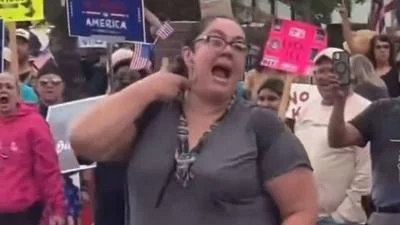Contributed photo
Contributed photo
EVANSTON, Ill. — Jordan Gans-Morse, a political scientist at Northwestern University and an expert on the former Soviet Union, said that “a new world order” is upon us and that the consequences of Putin’s invasion of Ukraine will echo for years to come.
Professor Gans-Morse, and other Northwestern experts, are available to speak with media on Russia’s invasion of Ukraine, and to explain whether the sanctions Biden and allies announced earlier today will be effective in deterring Moscow’s aggression.
The experts can be reached by contacting Mohamed Abdelfattah at mohamed@northwestern.edu or Stephanie Kulke at stephanie.kulke@northwestern.edu.
Will sanctions work?
Ian Hurd, expert on international law and organizations, said: “The rest of the world doesn’t have the tools to stop Putin from taking Ukraine. Russia’s military power is easily capable of taking over the country, as long as Moscow is willing to both cause enormous damage and bear costs for Russia. The best strategies are those that target the economic lifelines for Putin and his cohort. The Russian government gets its money from selling petroleum products to the world, and its elites stash their share of that wealth in foreign accounts and investments. For example, the U.S. and others could shut off the inflow of money to Russia by refusing to buy Russian oil and gas and could shut off the outflow of money by seizing oligarchs’ assets around the world. And the UK could take over their real estate in London and sports teams around the country, and exclude RT, the Russian English-language television network, from its airwaves.”
Hurd is a professor of political science in the Weinberg College of Arts and Sciences at Northwestern. The author of “How to Do Things With International Law” (Princeton University Press), Hurd’s work focuses on public international law, the theory and practice of international organizations and international relations theory. He has published on organization theory and international institutions, the politics of legitimacy at the United Nations, UN reform, labor standards and the International Criminal Court. He can be reached at ianhurd@northwestern.edu.
Restoring the Russian empire
Said historian Michael Allen: “Vladimir Putin's invasion of the Ukraine would seem to mark not only his determination to undue the post-Cold War status quo but to restore Russia to its place in the world order as it existed before the First World War, to a time when Russia was an empire that ranked alongside the other European empires, and the empire of Japan — and vied for regional supremacy with them — and a time before the United States had emerged as the world's leading power. Ironically, Europe's desire to avoid such a return to its bloody past likely emboldened his move and may mean it goes unchecked, at least militarily. But what Putin forgets is that imperial Russia was never internally strong to begin with, which is why it collapsed first in World War I before collapsing again to end the Cold War. Nothing he is doing now solves that problem.”
Allen is an associate professor of history. His research interests focus on U.S. political and diplomatic history. He is the author of “Until the Last Man Comes Home: POWs, MIAs, and the Unending Vietnam War.” His current work-in-progress, “New Politics: The Imperial Presidency, The Pragmatic Left, and the Problem of Democratic Power, 1933-1981,” treats evolving left-liberal relations to presidential power in the postwar era. He can be reached by contacting Stephanie Kulke at stephanie.kulke@northwestern.edu.
‘A new world order’
Said political scientist Jordan Gans-Morse: “We've awoken today to a new world order, one in which dictators again find it permissible to impose their will on weaker neighbors by force. The consequences of Putin's decision to invade Ukraine will reverberate for years to come, affecting everything from his own prospects of remaining in power to China's calculations about its policies toward Taiwan. In the meantime, Ukrainians will suffer immensely, and the rest of the world must not forget the sacrifice they are making as they seek to repel Putin's unlawful invasion.”
Gans-Morse is an associate professor of political science at Northwestern where he conducts research on corruption, the rule of law, property rights and political and economic transitions, with a focus on the former Soviet Union. He is the author of the book “Property Rights in Post-Soviet Russia: Violence, Corruption, and Demand for Law” and in 2016-2017 was a Fulbright scholar in Ukraine.
Tanks win battles, sanctions win wars
Said professor of international relations Karen J. Alter: “Bullets and tanks are how Russia can win a battle, but bullets and tanks are not how Russia can win this war, nor can they deliver to Putin what he most wants.
“Sanctions cannot win a battles, but they can be a potent force to win a war, and to deny to Putin what he most wants. For a military offensive, it may make sense to go in with shock and awe. For sanctions, an incremental strategy is by design necessary and best. The goal is to send a cascading message that conquest does not pay. The more violence, the higher the cost that Putin will pay. The more the violence, the more others will join in the sanctioning system. This means that sanctions roll out in waves, spreading the pain so that Putin’s supporters themselves start to question the war and Putin’s sanity in waging this war.”
Karen J. Alter is the Norman Dwight Harris Professor of International Relations in the department of political science and co-director of the Research Group on Global Capitalism and Law at Northwestern. Alter’s research focuses on the construction of global economic rules regulating trade and money, and on the determinants of politically sustainable capitalism. She can be reached at kalter@northwestern.edu.
Media contact:
Mohamed Abdelfattah
847.491.4890
Browse experts on:
Additional resources:
Connect with us
Northwestern University
Media Relations
847.491.5001
Northwestern University, 1603 Orrington Ave., Evanston, IL 60201 United States






 Alerts Sign-up
Alerts Sign-up